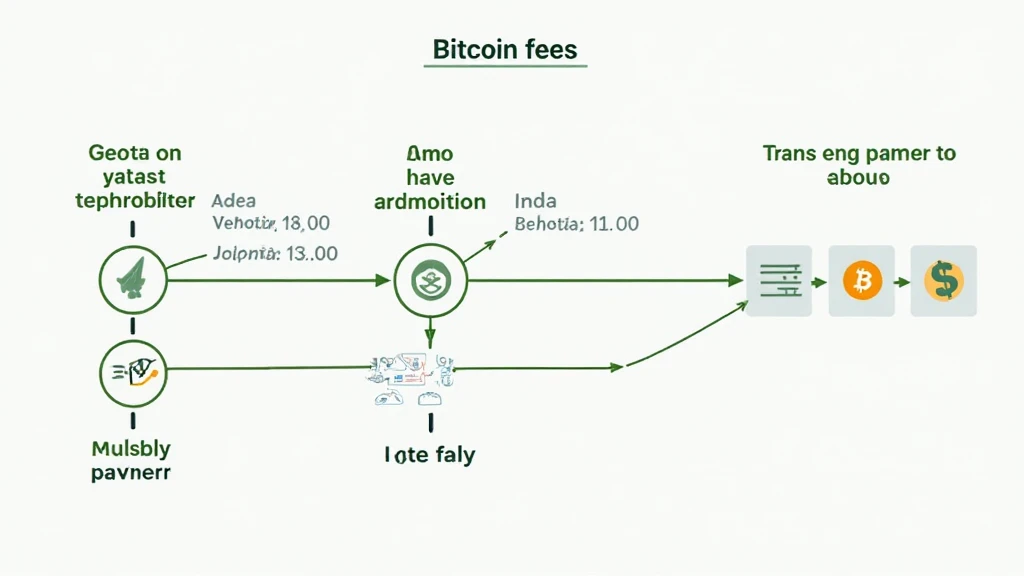Introduction
You might have heard that in 2024, a staggering $4.1 billion was lost to decentralized finance (DeFi) hacks. Just as traditional banks ensure secure transactions, the realm of cryptocurrency has its own costs associated with transactions, particularly when it comes to processing Bitcoin payments. In this article, we will explore Bitcoin payment processing fees, their structure, significance, and impact on users and merchants alike. Understanding these fees can greatly improve your cryptocurrency transaction strategies.
What Are Bitcoin Payment Processing Fees?
Bitcoin payment processing fees are charges applied to transactions made using Bitcoin. These fees vary based on network congestion, transaction size, and the fee market’s dynamics. Unlike typical credit card transactions that utilize a fixed percentage, Bitcoin’s transaction fees can fluctuate significantly. In developing countries, such as Vietnam, where Bitcoin adoption is rising, understanding these fees becomes increasingly vital.
How Bitcoin Fees Work
- The fee is based on the size of the transaction in bytes, not the amount being transferred.
- Higher fees may result in faster transaction confirmations.
- Users can set their own fees according to how quickly they want their transactions to be processed.
The Factors Influencing Bitcoin Payment Processing Fees
Several elements can affect Bitcoin payment processing fees:

- Network Congestion: Just like rush hour traffic, a congested network can lead to higher fees. During peak times, users willing to pay more can have their transactions prioritized.
- Transaction Size: Since fees are assessed based on transaction size (bytes), more complex transactions will incur higher costs.
- Bitcoin’s Price Volatility: As Bitcoin’s value fluctuates, so too can the willingness to pay fees, affecting market dynamics.
Comparing Bitcoin Fees to Other Payment Methods
When evaluating Bitcoin payment processing fees, it’s important to compare them with traditional payment methods:
- Credit/Debit Cards: These typically have fixed fees plus transaction percentages. For instance, a standard fee may be around 2-3% per transaction.
- Bank Transfers: Often free or low-cost, but they can take days to process.
- PayPal: Charges around 2.9% plus a fixed fee per transaction.
Bitcoin fees, particularly during times of high usage, can exceed those charged by some traditional banks, yet they offer unique benefits such as decentralization and global accessibility.
Understanding the Importance of Fees for Users and Merchants
For users, knowing Bitcoin payment processing fees is critical for managing costs. Merchants must also account for these fees, as they can directly impact pricing strategies and profit margins.
Implications for Users
Users need to be strategic in setting transaction fees. If they set their fees too low, they may experience significant delays in transaction confirmations. Observing current fee rates can aid in making informed decisions.
Implications for Merchants
Merchants accepting Bitcoin must factor in processing fees when deciding prices or whether to accept Bitcoin altogether. Additionally, in emerging markets like Vietnam, where adoption is growing rapidly, the ability to reduce costs through efficient fee management can be pivotal for competitive advantage.
Transaction Speed vs. Fee
Here’s the catch: higher fees not only lead to quicker confirmations but also impact user satisfaction. Let’s explore how transaction speed correlates to fees:
- Low Fee: Transactions may take hours or even days to confirm.
- Medium Fee: Generally leads to confirmations in a timely manner.
- High Fee: Transactions are typically confirmed within minutes.
Finding the right balance between speed and fees is essential for both individual users and merchants.
Best Practices for Managing Bitcoin Payment Processing Fees
To effectively manage Bitcoin payment processing fees, consider the following strategies:
- Monitor Real-Time Fee Estimates: Utilize platforms that provide real-time fee estimates to understand the ideal amount to set for fees.
- Batch Transactions: Grouping several transactions can save on fees compared to sending them individually.
- Time Transactions Strategically: Send transactions during off-peak hours when network congestion is minimal.
The Future of Bitcoin Fees: Trends and Predictions
As Bitcoin continues to evolve, so will its fee structures. Innovations like the Lightning Network aim to enable faster transactions with lower fees. Additionally, user education around fees is crucial for fostering greater mainstream adoption.
Emerging Technologies
With the rise of Layer 2 solutions like the Lightning Network, Bitcoin transactions may see lower fees and faster confirmation times. This could change the way users and merchants alike approach Bitcoin transactions, particularly in regions like Vietnam, where crypto adoption is booming.
Conclusion
Understanding Bitcoin payment processing fees is paramount for anyone participating in the cryptocurrency ecosystem. As more people and businesses, including those in Vietnam, adopt Bitcoin, being informed and strategic about these fees will lead to more efficient transactions. Whether you’re a user hoping to optimize your transactions or a merchant looking to avoid unexpected costs, knowledge is power in navigating Bitcoin’s fee landscape. Remember—like navigating a busy road, being aware of potential costs can help you reach your destination without unnecessary delays.
For further knowledge on Bitcoin payment processing and more insights into the evolving world of cryptocurrency, stay connected with cryptocoinnewstoday.
About the Author
Dr. Alex Ferguson, a blockchain technology expert with over 20 years of experience in cryptocurrency research and auditing, has published numerous papers on digital asset protection and the transaction mechanisms behind cryptocurrency networks. He is a recognized authority in this field, having led compliance audits for several well-known blockchain projects.





